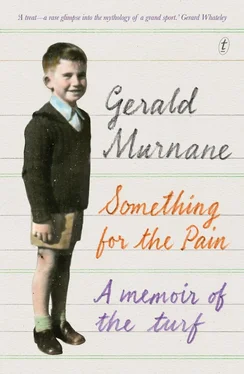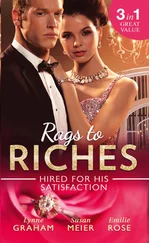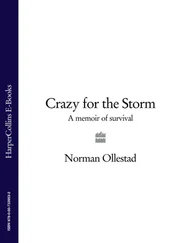The two-drawer filing cabinet mentioned earlier is not my only filing cabinet — far from it. I have also six four-drawer filing cabinets that I call my Chronological Archive. The twenty-four drawers of this archive are packed with thousands of letters and with diaries, autobiographical writing, and memorabilia from the past sixty years. The third archive is the Literary Archive. This consists of fifteen filing-cabinet drawers — one for each of the books that I’ve written: twelve so far published and three still unpublished.
My wife seldom intruded on me when I was at my desk of an evening, and I had been working on and off for nearly ten years on the Antipodean Archive before I first showed it to her. She did not look into the details, but she expressed her admiration for the whole and she left the room wondering aloud how I could have found the time to put such a thing together. If she had put the question directly to me, I could have answered it, but perhaps she knew me well enough not to need to ask. I could have answered by reminding her that I hardly ever watched television or listened to radio; that I watched hardly any films; that I had decided in early middle age that most books were not worth reading and that most music was not worth listening to or, at least, that I had read all the books likely to influence me and had heard all the music likely to affect me. Or, I could simply have reminded her that for most of my adult life I had devoted all my free time to minding my own business, in the truest sense of that expression.
27. Lord Pilate and Bill Coffey
BY 1988 I had been working for almost ten years as a teacher of creative writing in a college of advanced education. My job was satisfying and well paid, but, of course, it had its hardships and drawbacks. One minor hardship was that the college did not observe as any sort of holiday two of the most important days on the racing calendar: Melbourne Cup Day and the Labour Day holiday in March, when the Australian Cup was run. I usually managed to arrange my timetable so that I had no classes on Tuesday afternoon and could get home early to watch the Melbourne Cup on television, but that required me to take classes on most of Monday, so that I was usually in class when the Australian Cup was run. On Australian Cup Day in 1988, I had a window of opportunity, as they say. The Cup was going to be run during an hour when I was free of classes. This was especially pleasing because the Cup that year promised to be one of the best races of its kind for many years. Two outstanding horses were going to clash in the race: Vo Rogue and Bonecrusher. There were other good horses in the race, but tipsters considered it a match between the two. (Vo Rogue’s colours were Brown and white; Bonecrusher’s were Brown and cream.)
Early in the day, I went to the room where we stored television sets, technology for language laboratories, and other devices that I could not even have named. (That might have been the time when the first computers were finding their way into our institution and I made my fateful decision to have nothing to do with them.) Anyway, the man in charge of all the technical stuff told me I was welcome to use one of the television sets for a few minutes later in the day. I learned from our brief conversation that he had never heard of the Australian Cup and that I was the only person on the whole campus to have approached him with my sort of request.
A few minutes before the Cup, I went to the technical room, or whatever they called it, and tuned in my set. I had thought I might find a few other people waiting for the big race, but I was alone in the room. I felt more than ever before that I was an outsider in my place of employment. I had hardly ever been into the staffroom at morning teatime or at lunchtime. This was mostly because I was usually too busy preparing for my many classes or assessing the many assignments that my students wrote, but also because I could seldom join in the conversations among my colleagues. They talked often about what they called issues . A typical conversation arose when someone asked, ‘Who saw that documentary about such-and-such last night on the ABC?’ And then, away they went, each vying to give his or her opinion. Or, if it wasn’t a television documentary, it was politics. If they talked about sport, it was either football or cricket or, perhaps, tennis. Maybe they talked about racing at Melbourne Cup time, but I was never around to have to listen to their inanities. As I’ve said, I was hardly ever in the staffroom and, while I waited for the Australian Cup, my colleagues seemed more remote from me than ever.
I was still alone when the field for the Australian Cup was being loaded into the barrier stalls. Then I heard someone enter the room behind me — followed by someone else. So, I was not the only one on the whole campus who could appreciate horse racing! When I looked around, I saw the Buildings Officer, whose name I’ve long since forgotten, and a young man I knew only as Jason, the gardener’s apprentice. (Dandy Andy, carrying Black and yellow squares, green cap, beat the two favourites in the race, but that’s another story.)
It was not only among my tertiary-institute colleagues that I felt out of place. I haven’t lacked for friends during my life, but I’ve never belonged in any circle or group. For much of the 1970s, my wife and I mixed from time to time in a group that included a writer or two, a few academics and teachers, and a few people connected with the theatre. They were mostly witty people, and we often fell about laughing. I can’t recall ever being bored in their company, but perhaps that’s because I always drank a lot. They might have been fun to be with, but I never felt close to them. I’d had two books published by then, and the people I’m talking about seemed to have assumed that because I was a writer I was like them in having left-wing political beliefs, reading the Age and tuning in to the ABC. Sometimes, I liked to provoke them. Sometimes, after I had drunk a good deal, I used to argue that horse racing had as much to teach us as had Shakespeare and certainly much more than some of the pretentious films and plays that they were fond of praising and discussing. They mostly assumed I was joking, but sometimes they gave me a hearing, and one night I tried to tell them how I had been affected by what I had seen of the owner-trainer Bill Coffey.
I knew very little about Bill Coffey. I had surmised a few details, and I imagined others. Bill was a New Zealander, but I didn’t even know what district he came from. He had first arrived in Australia in the mid-1960s with his horse Straight Irish (Purple, gold band and cap, red sleeves). Bill had brought the horse to Australia at least twice, with moderate success. Straight Irish had won only one race in Melbourne but had earned prize money from several placings in relatively rich races and had run fifth in Polo Prince’s Melbourne Cup at odds of two-hundred-to-one. I tried to explain to my not-very-receptive audience how I much preferred to study the career of such as Bill Coffey than to watch, for example, any of the Greek dramas that they, my audience, might have watched and been moved by. I could never, I said, be affected by the sight of some actor’s wailing and throwing her arms around after she had killed her children — I should have said her pretend children . Nor could I be affected by some actor’s long soliloquy after he had copulated with his mother, daughter, whoever. (I had only a vague knowledge of Greek drama, but I thought I knew enough to make my point.) What did affect me, I said, and in this I was being wholly sincere, was the sight of a man such as Bill Coffey leading back towards the saddling paddock a horse that had come close to winning a big race but had faded in the straight to earn only a minor prize. Bill, to judge from his dress and his appearance, was a humble man whose horse was his only means of acquiring wealth. The race just run had not ruined him. He was not at all crushed or impoverished. But Fate, through the agency of horse racing, was leading him on, teasing him, seeming to promise what it might never deliver.
Читать дальше












